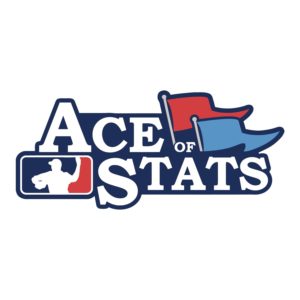Baseball has a drinking problem.

If you take me out to a ballgame and buy me some peanuts and Cracker Jack, I’ll be grateful. Now, if “Peanuts & Cracker Jack” is the name of some trendy craft brewery’s newest IPA, I’ll be your best friend. Baseball and booze are the perfect pairing. Apologies to Mr. Cracker, but I prefer my Jack in a cold glass of Coke.
So, it saddens me that two great pastimes— drinking and baseball— are dividing fan bases from coast to coast.
Traditionally, most MLB teams have cut off alcohol sales after the seventh inning, purportedly to allow fans an opportunity to sober up before exiting. With MLB instituting new rules aimed at speeding up play in 2023, some have argued that the new cutoff should take a step back, to the sixth inning.
Says Phillies pitcher Matt Strahm:
“So now, with a faster-pace game —and me just being a man of common sense— if the game is going to finish quicker, would we not move the beer sales back to the sixth inning to give our fans time to sober up and drive home?”
I get the logic at play here, but I disagree with the move. To be honest, I’m in agreement with the four teams that decided to EXTEND sales to the eighth (D-Backs, Twins, Rangers, Brewers). Now, let’s see if we can respectfully break this down without resorting to Covid-type arguments.
Remember when, if you didn’t wear a tightly-drawn N95 and surgical gloves to take your dog for a walk, you wanted everyone’s grandma to die? That was awkward. Now, in this case, over-served grandma is behind the wheel post-game, picking off children innocently playing stickball in the streets of downtown Milwaukee. It’s very simple to conjure these tragic correlations, especially in scenarios of recreational risk— situations where risk is assumed for a seemingly non-vital function. But, of course, recreational risk is part of life.
My problem with the sixth inning solution is that it doesn’t inherently solve the issue at hand. ANY alcohol consumption can be dangerous, and one inning— more or less— is not likely to move the needle in terms of negative correlative outcomes. If we all agree to accept that MLB is going to legally sell alcohol, the responsibility has to fall mainly on the consumer.
Personally speaking, the seventh and eighth innings of Phillies games are typically when I need a beer the most. At home, when the Phils go to the bullpen, I go to the fridge. I also stress eat, and make a plate of second-dinner (aka The AfterTizer), but I digress. Drinks get me through it. I’d do the same at the ballpark, right up to the final pitch if I could. In either scenario, I’m not getting behind the wheel of an automobile.
Don’t call me naive. I know that irresponsibility is as inextricably glued to the human experience as Cracker Jack is to his dog, Bingo (hey, you just learned something!). I’m just asking everyone to believe in their fellow fan.
Now, just as if this was an ad for the alcohol industry itself:
Drink responsibly.




